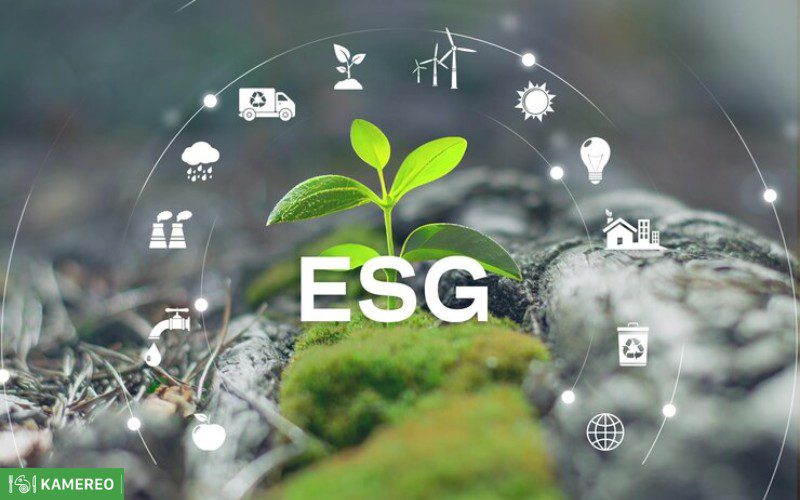In recent years, the term ESG has become increasingly popular. According to research by PwC and the Vietnam Institute of Directors, about 66% of companies nationwide have begun to adopt this standard, but only 22% ensure all aspects are fully covered. So, what is ESG? Why do businesses need to adopt it? Let’s find the answers with Kamereo in the following article!
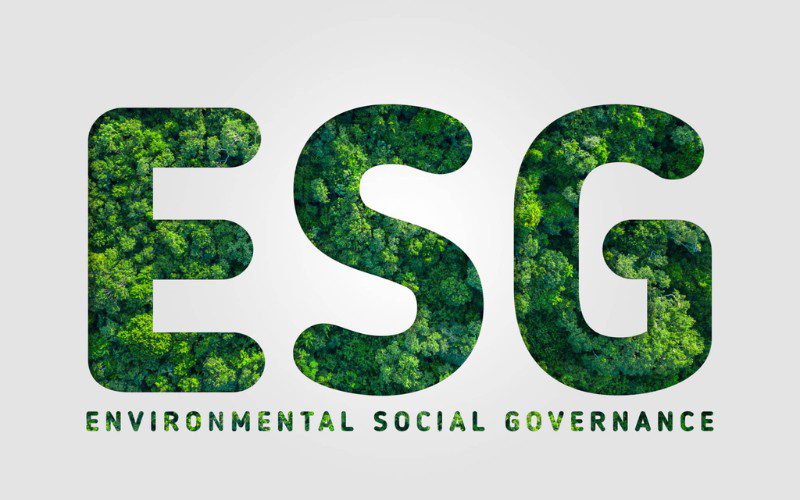
What is ESG?
ESG stands for Environmental, Social, and Governance. These are standards used by businesses to evaluate a company’s potential for sustainable and safe development.
Increasingly, investors are focusing on ESG factors when assessing business operations and organizational performance. These factors include the impact of a business on the environment, society, and governance performance in handling those impacts. A higher ESG score indicates that a business is well-practiced in these standards, helping to identify risks and potential growth opportunities.
ESG metrics are not usually part of mandatory financial reports. However, many companies still disclose this information in their annual sustainability reports. Most reports follow the standards of SASB, GRI, the UN Global Compact, and other international standards. Additionally, local laws, agreements, and principles in each country also affect the reports of businesses.
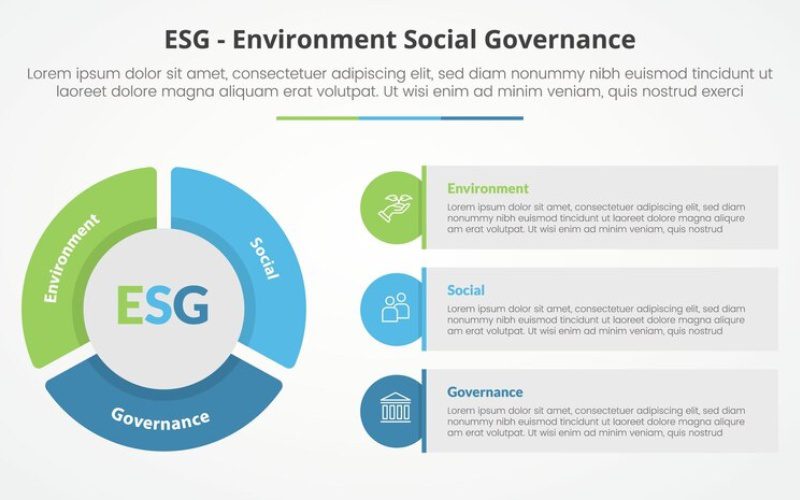
ESG Standards Needed in Businesses
Applying ESG standards in businesses helps to evaluate and enhance the sustainable performance of an organization. Below are detailed standards for each aspect:
Environmental (E)
Firstly, E – Environmental is an aspect that assesses the impact of businesses on the environment and natural resources throughout the production, operation, and management processes. Simply put, organizations will be evaluated based on the following factors:
Climate Change
Climate change criteria will be evaluated based on both international and domestic commitments. These criteria are also assessed according to national policies and local regulations. At the 2021 United Nations Climate Change Conference (COP26), Prime Minister Pham Minh Chinh impressed with Vietnam’s commitment to climate change response.
Specific targets include:
- Reducing national total emissions by 43.5% by 2030 and achieving net-zero carbon emissions by 2050.
- Reducing methane emissions by at least 30% by 2020 and 40% by 2030.
As a pioneer in establishing ESG policies, the government will motivate and provide clearer bases for Vietnamese businesses to achieve ESG-related commitments.

Energy
Businesses implementing ESG need to ensure efficient exploitation and use of energy. Additionally, the use of infinite alternative energy sources such as solar and natural wind energy is encouraged.
This helps protect the environment from energy depletion and allows the organization to operate continuously without relying on limited energy sources, thereby improving production processes and product quality.

Natural Resources
The next criterion is natural resources, including land, water, green trees, minerals, and air. To achieve a high ESG score in this standard, businesses need to ensure they have all the necessary permits when using any natural resources.
Many organizations score points by proactively restoring polluted areas. Some businesses even research and implement new technologies to create resources without affecting the environment.

Waste Management and Recycling
To achieve a high ESG score, businesses must record and list the types and volumes of hazardous waste. Then, businesses need to collect, classify, and store waste in places that do not cause pollution.
According to current policies, waste can be transferred to licensed treatment facilities. If possible, companies should recycle or reuse waste to minimize environmental impact and optimize energy use.
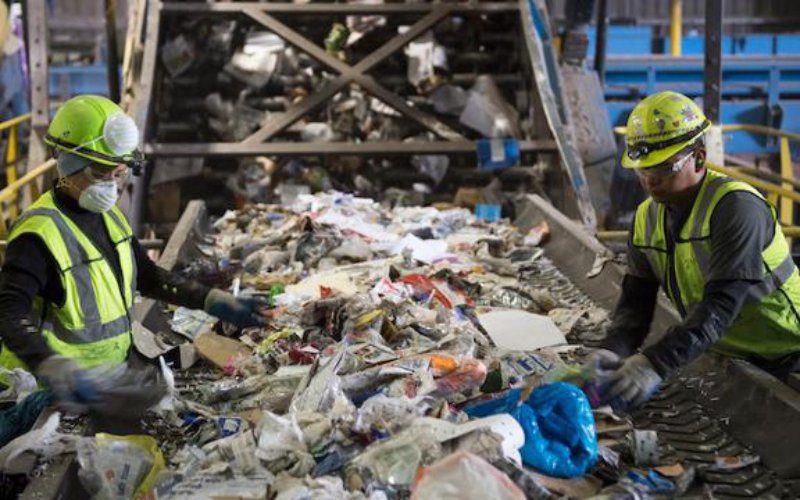
Social (S)
The second aspect of ESG is social, which helps businesses evaluate factors related to the company’s relationship with customers, partners, and working conditions for employees as stipulated in the 2019 Labor Code No. 45/2019/QH14.
Privacy and Security
This is an important criterion, but regulations and laws on privacy and security are still relatively new in Vietnam. Currently, this issue is mainly applied based on the Civil Code, Cybersecurity Law, and Information Technology Law.
To implement ESG, businesses need permission from the owner before collecting, using, or processing their data. Companies must not disclose personal information and must commit to taking measures to ensure data safety.

Diversity, Equity, and Inclusion
Diversity, equity, and inclusion will be evaluated based on the current Labor Law. Accordingly, organizations must not discriminate against employees based on gender, skin color, race, religion, or social class. Male and female employees need to be treated fairly in all aspects, including work, promotion opportunities, salaries, etc.

Safe Working Environment
An ESG standard that cannot be ignored is the working environment. The area must ensure labor safety and health for employees. ESG prohibits all forms of forced labor, abuse, exploitation, and harassment of employees.
Additionally, the standard is very strict about using labor under 18 years old. ESG requires organizations to comply with working hours and the nature of the work as stipulated by the Labor Law.

Working Conditions
ESG will evaluate the company’s score based on Vietnamese legal regulations on criteria such as wages, working hours, health checks, and insurance policies. Companies can receive high or low scores depending on their working conditions.

Governance (G)
Finally, the governance aspect of ESG relates to the organization’s activities to ensure efficiency, transparency, ethical business practices, and compliance with local regulations.
Disclosure of ESG Reports
Vietnamese law requires businesses implementing ESG to disclose information and annual operational results such as resource exploitation-consumption, labor policies, financial reports, and community contributions. These reports need to be publicly submitted to the Vietnam State Securities Commission and the Stock Exchange.
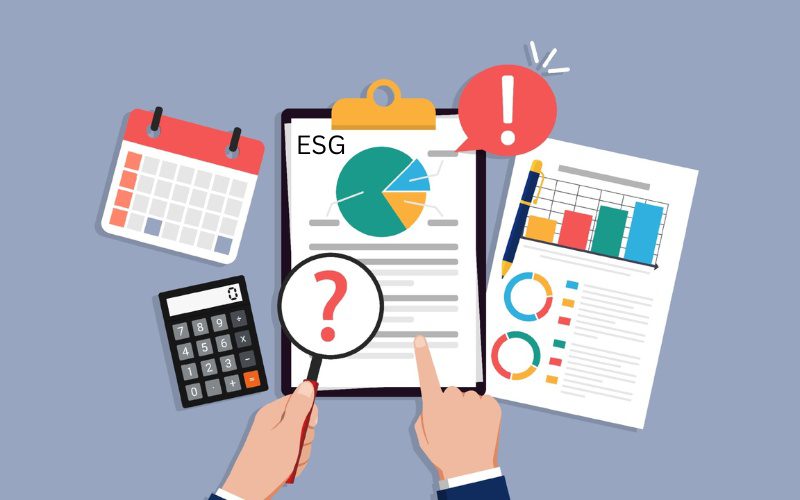
Anti-Bribery and Corruption
Anti-bribery and corruption are highly valued in governance. This ESG standard will be evaluated according to the Anti-Bribery and Corruption Law and Vietnam’s Criminal Law.

Diversity and Inclusion of the Board of Directors
The final ESG aspect of governance is the diversity and inclusion of the board of directors. This criterion evaluates the diversity of the board members’ backgrounds concerning gender and background.
According to Vietnamese law, in some cases, organizations are required to have an independent board of directors. For example, publicly unlisted companies must have at least one year of experience in the same field.

Why Do Businesses Need to Implement ESG?
Implementing ESG standards brings numerous important benefits to businesses. Here are the main reasons:
Enhancing Business Image and Reputation
Businesses that adhere to reliable ESG standards create trust among customers.
- A Nielsen survey in 2022 found that 80% of Vietnamese consumers are willing to pay more for products that are green-clean and made from environmentally friendly materials.
- A PwC report in 2023 revealed that 96% of surveyed consumers in Vietnam are willing to pay more for products from companies with ethical business practices.

Creating a Good Working Environment
Currently, businesses that apply ESG create safe working conditions and good training and development policies for employees. Additionally, the working environment is friendly, comfortable, and inclusive. This helps in retaining employees at a higher rate compared to businesses that have not yet implemented ESG.
Risk Management and Cost Savings
Recycling and waste management help businesses save on operating costs. Companies with high ESG standards often avoid incidents such as environmental pollution or legal violations, thereby minimizing costs related to remediation and handling.

Attracting Investment and Accessing Capital
Many investors are now interested in ESG when making investment decisions. Additionally, financial institutions and banks often offer more favorable loan conditions to businesses that comply with these standards.
According to McKinsey, companies with good ESG standards often have lower capital costs, making it easier for them to access favorable funding sources.
Meeting Legal and Regulatory Requirements
Adhering to ESG standards helps businesses meet legal requirements regarding the environment, society, and governance, reducing the risk of fines or litigation. This not only helps businesses operate more sustainably but also builds trust with regulatory agencies and the community.

Contributing to Sustainable Development
Minimizing negative environmental impacts and using resources sustainably contribute to protecting the planet for future generations. Additionally, engaging in socially responsible activities improves the quality of life for employees and the surrounding community.
Regulations on ESG Businesses in Vietnam
In Vietnam, regulations on ESG businesses are gradually being completed to promote sustainable development. Here are some regulations you can refer to:
Environmental Protection Law 2020
Requires businesses to conduct environmental impact assessments (EIA) and report on pollution reduction and environmental protection measures. It promotes the use of renewable energy and energy-saving measures.
Enterprise Law 2020
Requires businesses to comply with corporate governance regulations, ensuring transparency and accountability. Encourages businesses to develop and implement sustainable development policies.
Circular No. 96/2020/TT-BTC by the Ministry of Finance
Requires listed companies to disclose information related to ESG activities, including reports on social responsibility and environmental management.
National Strategy on Green Growth
Sets out goals and measures to promote sustainable economic growth, reduce greenhouse gas emissions, and enhance environmental protection. Encourages businesses to adopt green and environmentally friendly technologies.
Guidelines for Sustainable Development Reporting
Provides guidelines for businesses on preparing sustainable development reports, including information on the environment, society, and governance.

Companies Currently Excelling in ESG Standards
Currently, many companies are applying ESG standards in their businesses, contributing to the overall national goal of sustainable development.
Vingroup
On March 14, 2024, Vingroup won the AIBP 2023 ASEAN Tech for ESG award organized by Media OutReach Newswire in Singapore. This affirmed the company’s position in investing in sustainable development.
Some highlights of Vingroup’s application of ESG standards include:
- Environmental: Implementing green urban development projects, using renewable energy in urban areas, and investing in electric vehicle and clean energy projects.
- Social: Building education and healthcare programs for the community, creating good working conditions for employees, and encouraging diversity and inclusion.
- Governance: Ensuring transparency in financial reporting and corporate governance and applying strict risk management measures.

Vinamilk
Vinamilk is indispensable when mentioning successful companies in applying ESG. In 2022, the brand was honored in the top 50 leading sustainable development businesses in Vietnam, thanks to its early shift in development orientation over the years.
Vinamilk focuses not only on product strategy but also on ensuring ESG standards as a long-term foundation for comprehensive improvement. With the goal of “Reaching New Heights for Vietnam, Reaching Out to the World,” the brand demonstrates a spirit of fair and comprehensive collaboration with stakeholders, partners, the government, and even employees and farmers.
Vinamilk is determined to pursue ESG standards in farming by planting more trees and applying modern technologies to ensure milk quality and improve farming environments.

Kamereo
Despite being a young brand, Kamereo is determined to pursue ESG goals in its business. The brand is one of the pioneers in environmental commitment and sustainable development at the Food Forum 2023 event.
Additionally, Kamereo has invested in a large growing area of up to 10 hectares in Da Lat, contributing to delivering clean and quality products to customers.

Conclusion
Effectively implementing ESG standards helps businesses enhance their reputation and operational efficiency while contributing positively to the sustainable development of businesses, society, and the environment. For more related news, you can follow F&B Business Experience.
Read more:



